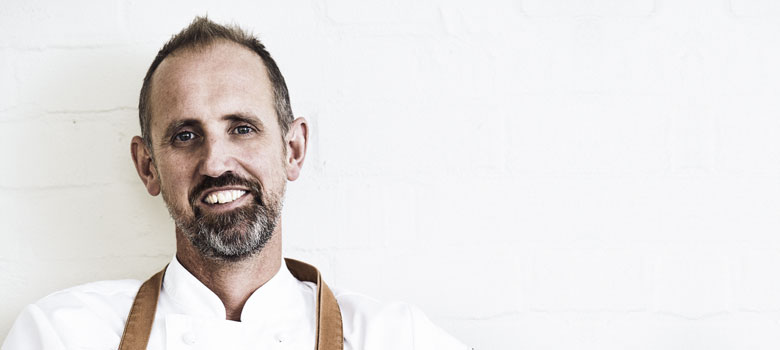
Food
Cameron Matthews: Sustaining a New Generation
Celebrating sustainable produce in your kitchen is one thing, but chef Cameron Matthews believes having sustainable staff is worth celebrating too.
When it comes to sourcing produce, chefs will search high and low for the most delicious and sustainable options. They know that eggs with bright yellow-orange yolks, hard shells and a rich flavour come from free-range chickens. Chickens that have been given the freedom to wander the farm, pecking-up bugs, worms and grasses in the sunshine. When sourcing the poultry itself, chefs want animals that have led happy and stress free lives.
Now consider how kitchen teams spend their many working hours, which can easily be up to 15 a day. They work at a frenetic pace in confined, hot, artificially lit spaces, dealing with constant time constraints and pressure points. Leftovers and offcuts are ingested while still standing in an attempt to build energy.
This powerful comparison was put forward in a blog post by Cameron Matthews, Executive Chef at Spicers Guesthouse modern-Italian Restaurant Eremo in the Hunter Valley. He described the opposing behaviours as a classic case of cognitive dissonance.
“If that prized chicken was raised under comparable conditions as chefs work in, it would be unacceptable in our kitchens, yet we put ourselves through this unacceptable scenario,” he wrote.
Such a high pressure lifestyle isn’t sustainable for most chefs, but how can it change? That’s one of the major questions Cameron tried to get to the bottom of while spending 12 weeks travelling the globe as part of his Churchill Fellowship back in 2017.
a search for answers
As a chef with close to 30 years of experience working in some of Australia’s best high-end restaurants, Cameron had a strong desire to bring about change within his field. This fire was lit in his belly after watching with “dismay and concern” the decline in high end restaurants and the closure of many successful restaurants.
“This is partly due to harsh working conditions and lack of new and talented chefs willing to do the ‘traditional’ work – work at an over-demanding and unrealistic level,” he explains.
To find answers, Cameron studied some of the kitchens and farms of the highest rated, most sustainable restaurants in the world.
His Churchill Fellowship study tour included big names across the globe, such as Blue Hill at Stone Barns Center for Food & Agriculture in New York, Restaurant Relae in Copenhagen and Septime in Paris.
“I wanted to get a broader perspective on what it takes to become a chef at a Michelin Star level,” he describes.
changing mindsets
Cameron admits he was hoping to find a master plan that could be applied in every kitchen – a ‘blueprint for sustainability’, if you will.
“However, I now realise there is a collective need for change of mindset and direction for young chefs to follow,” he says. “One of my key objectives is to recruit experienced, valued chefs to help facilitate these changes.”
“It is this change of mindset that is of utmost importance,” he continues, “encouraging chefs to think outside the box, and use their creative talents (on something other than food, which we all obsess over) to benefit our community, the planet and our own well-being.”
One of the major changes he has made for his own staff since returning, is the way they get fed. In his Pokolbin restaurant, his team sits down at a big share table each night to eat together.
“We share a big solid meal like you’d have at home. We really try to talk rather than the traditional chef dinner of scoffing down scraps on a milk crate out the back,” Cameron explains.
“I chase my team out of the kitchen. 4:30pm is dinner time. In my book, it is a non-negotiable.”
checking in
As well as being a good chance to bond, Cameron says sharing a meal with the team is a really good barometer to see who is up and who is down.
“If you’re astute and a good leader, you can pick the people you need to grab later on and make sure they’re ok.”
Cameron notes the importance of checking in on staff with mental health issues as suicide rates are a concern within the industry.
The way he teaches and pulls his staff into line in the kitchen has changed too.
“The way I was taught was with a kick in the shins or a punch in the head, but there’s no place for that anymore and rightly so,” he says.
Instead, Cameron opts for more open and honest communication.
He is also looking into bringing in a personal trainer for his team.
“We see benefits through exercise and being outside,” he explains.
Cameron emphasises that caring for his staff doesn’t mean he wants chefs to “become soft.”
“What I mean is, still work hard, but make sure we are working efficiently and effectively rather than running on 15 coffees a day. Kitchen teams are most creative and driven when fresh.
“For the next generation to survive, prosper and be healthy, I believe it’s a change of mindset that we need to introduce and nurture.”